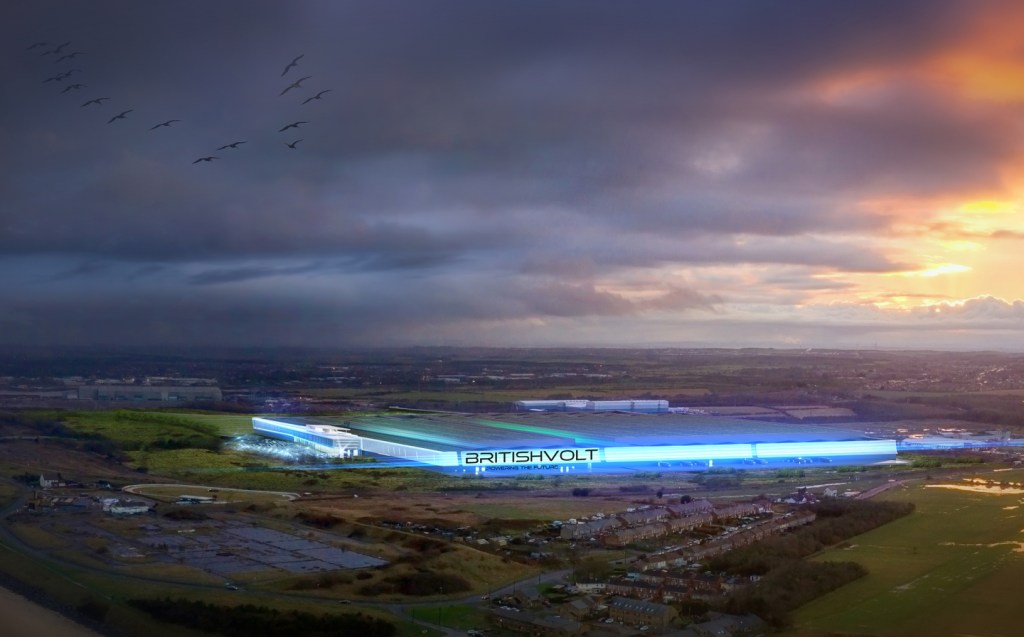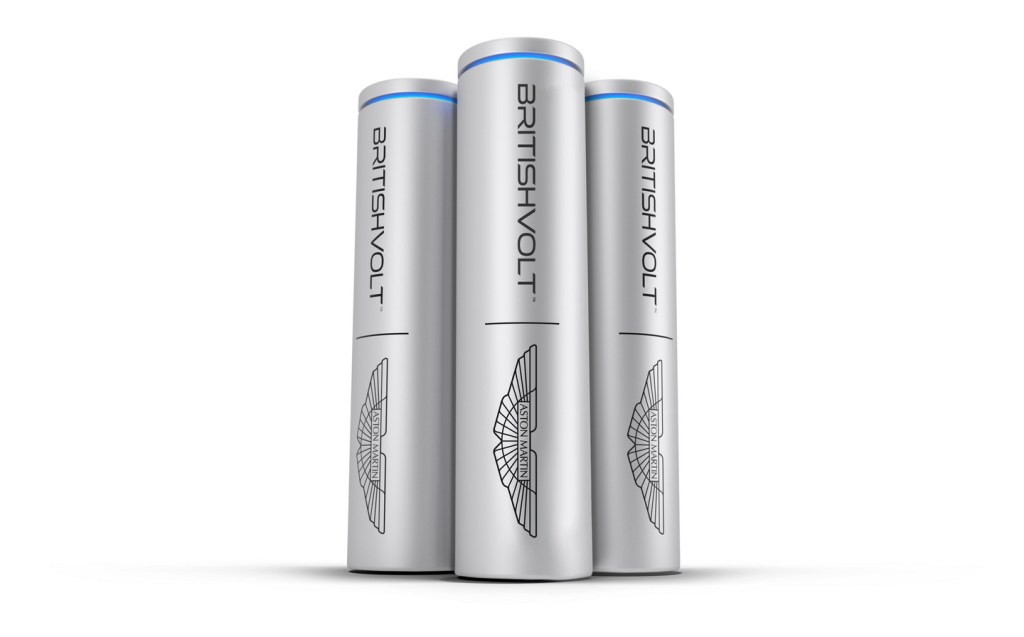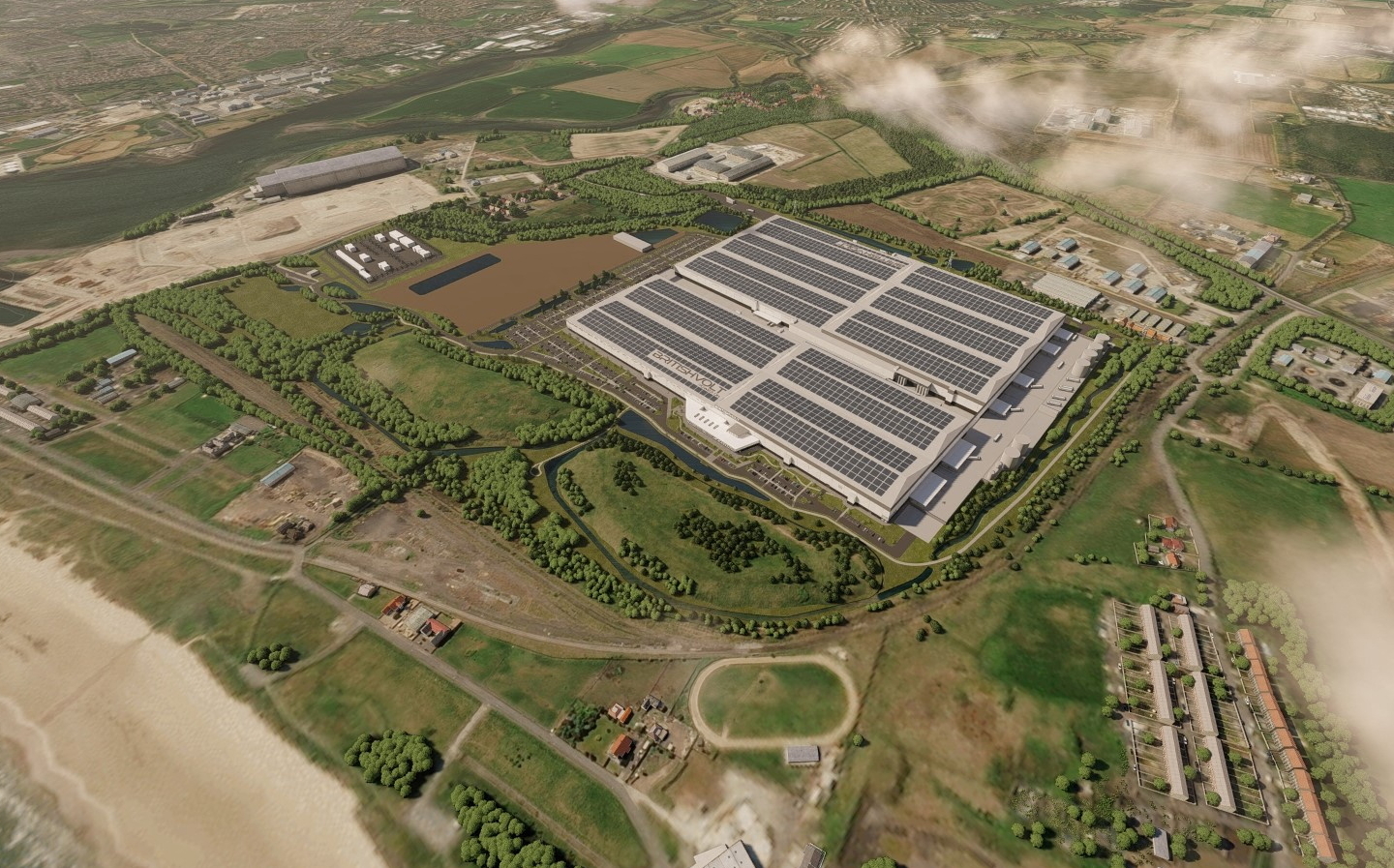Britishvolt EV battery factory brought out of administration but buyer’s plans remain uncertain
Good news for Blyth, but not so much for UK car industry
A deal to rescue the troubled electric vehicle battery manufacturer Britishvolt, which will see the firm bailed out of administration by an Australian battery start-up, has been finalised.
The deal, finalised late on Sunday (February 26), revives hopes for the construction of a £3.8bn battery production facility in Blyth on the Northumberland coast. However, while Britishvolt had been touted as a crucial part of the UK’s future automotive manufacturing ecosystem, its buyer’s plans for the firm in that regard remain uncertain.
Britishvolt went into administration in January having run out of cash and failed to secure long-term investment; within three weeks the Australian battery-maker Recharge Industries, backed by a wealthy American investment fund, had put together a rescue package and been named the preferred bidder for the collapsed British firm by its administrator, EY.
Recharge does not currently have its own battery production facility and is preparing to begin construction of its first factory in Geelong, near Melbourne in southern Australia.
What it does have, though, is a licence to employ well-proven proprietary battery technology from the US lithium-based battery developer C4V, which could potentially hasten both construction and the start of production at the Blyth site.
Rather than pursuing Britishvolt’s original goal to develop its own nickel- and cobalt-based battery technology, Recharge said it would likely transfer the lithium-based technology being used at its Geelong site to Blyth.
Instead of supplying to the automotive industry, the firm aims to focus on building batteries for energy storage and the defence industry.

Recharge’s successful pitch to Britishvolt’s administrators is thought to have relied in part on its ability to realise the potential of the diplomatic and defence connections between the UK, United States and Australia (known as the “Aukus” pact), as well as its plans to build batteries for military applications.
“What we are bringing is validated technology,” David Collard, the Geelong-born CEO of Scale Facilitation, the fund behind Recharge, told the BBC.
“The US defence industry has validated it and it is already supplied to the UK navy through a subcontractor.”
Recharge is also known to have several ex-military personnel in key positions in the company.
Collard had previously been critical of Britishvolt’s plan to focus solely on EV battery production rather than diversifying into energy infrastructure and said that the British firm had burnt through too much cash attempting to develop its own battery technology, which has, so far, only reached the prototype stage.
Recharge’s abandonment (initially, at least) of plans to supply the automotive industry will come as a worry to those in the UK car manufacturing sector.

Industry figures including Dr Andy Palmer, the former CEO of Nissan GB and Aston Martin, have warned that the British automotive industry faces a bleak future if it doesn’t significantly ramp up battery production capacity in the coming decade, ahead of the government’s 2030 ban on the sale of new petrol and diesel cars.
“The consequences of not correcting course will be the continuing demise of our automotive manufacturing capability as car makers move to Europe or elsewhere, where battery capacity is being rapidly deployed as a matter of economic priority,” said Palmer on Twitter, following news of Britishvolt’s collapse in January.
Nissan has also said that the future of its Sunderland plant — the UK’s biggest car factory — could be in danger if the UK doesn’t focus on bolstering and rebuilding its automotive supply chain.
According to industry estimates, the UK automotive industry will need 10 high-volume battery facilities by 2040 to meet demand; at present, the country has just one major battery production facility, a Chinese owned factory next to Nissan’s Sunderland plant.
The UK lags well behind the rest of Europe, with some 35 automotive battery production sites either in operation or under construction across the European Union.

A blow though Recharge’s plans may be to the UK car industry, they come as good news for the north-east.
Recharge says that it aims to retain the Britishvolt brand name and that previous plans to employ 8,000 people both directly and in the wider supply chain still stand.
Collard described the Cambois factory site — where a coal-fired power station once stood — as “shovel-ready”, but said that it would be six months to a year before construction could begin.
Related articles
- After reading about the rescue of Britishvolt, you may also like to check out all the car makers’ electric vehicle plans
- Wondering what are the best EVs right now? Check out our electric car reviews here
- Or read more about the agreement between Aston Martin and Britishvolt, signed earlier this year
Latest articles
- Red Bull confirms Adrian Newey’s departure, but where next for the F1 designer?
- Lotus shows off its work on British Cycling’s Paris Olympics bicycle
- New Aston Martin Vanquish to get V12 engine with 824bhp
- Cupra updates Leon and Formentor with sharp styling and longer-range hybrids
- Extended test: 2023 Vauxhall Astra Sports Tourer GS PHEV
- Omoda 5 prototype review: Bargain family SUV is solid first effort for new Chinese brand
- Dacia Duster 2024 review: Rugged, affordable SUV modernised with electrification and quite the glow up
- Audi A3 Sportback 2024 review: Softly, softly, catchy premium hatchback buyer
- New electric-only Mini Aceman fills gap between Mini Cooper hatch and Countryman SUV














